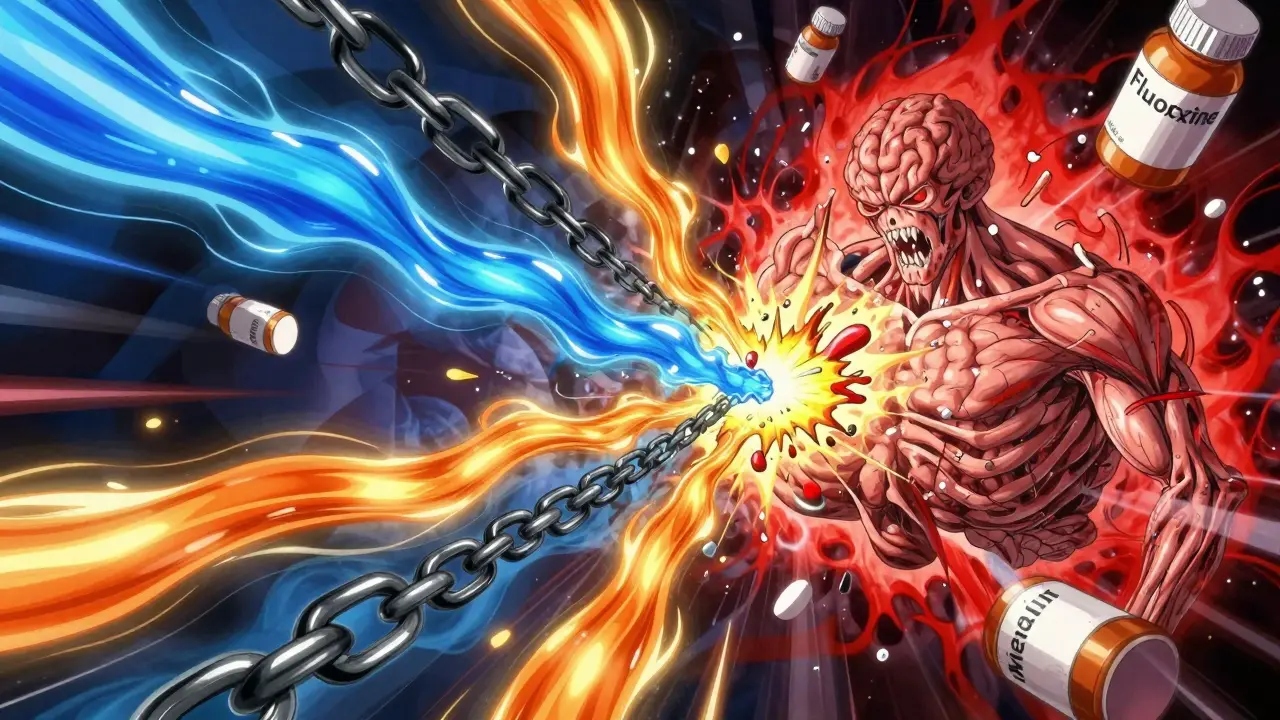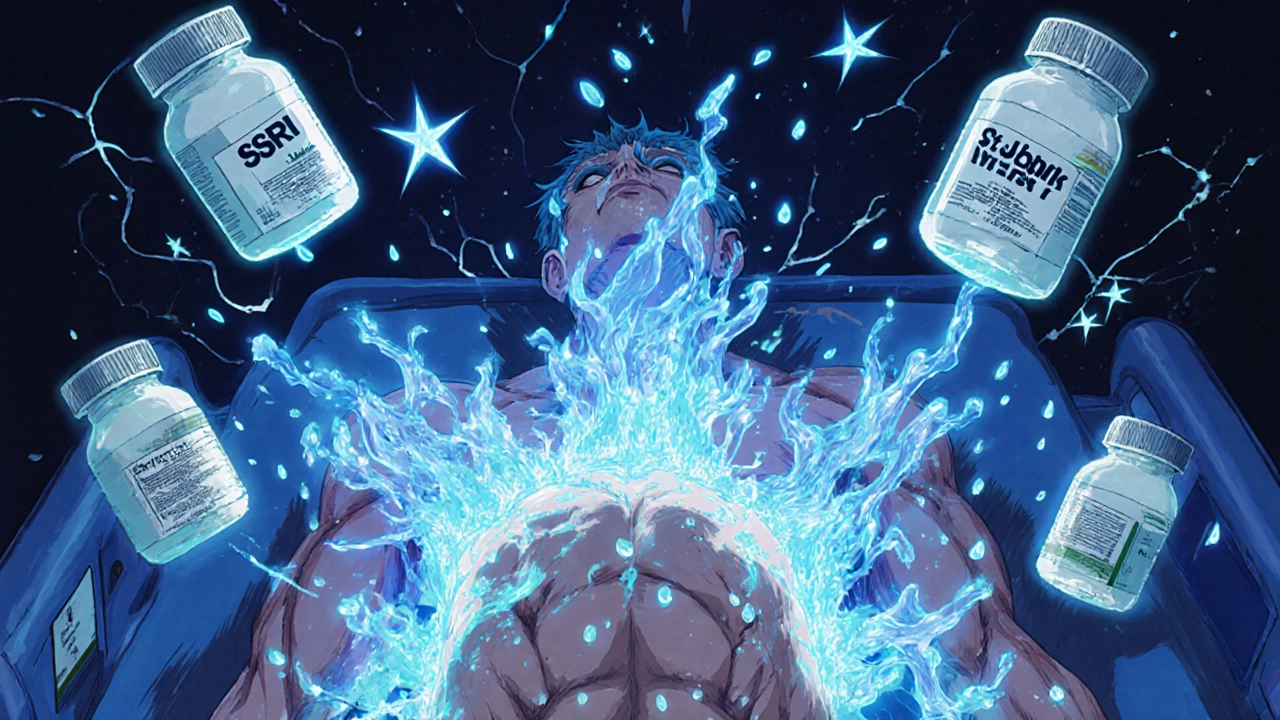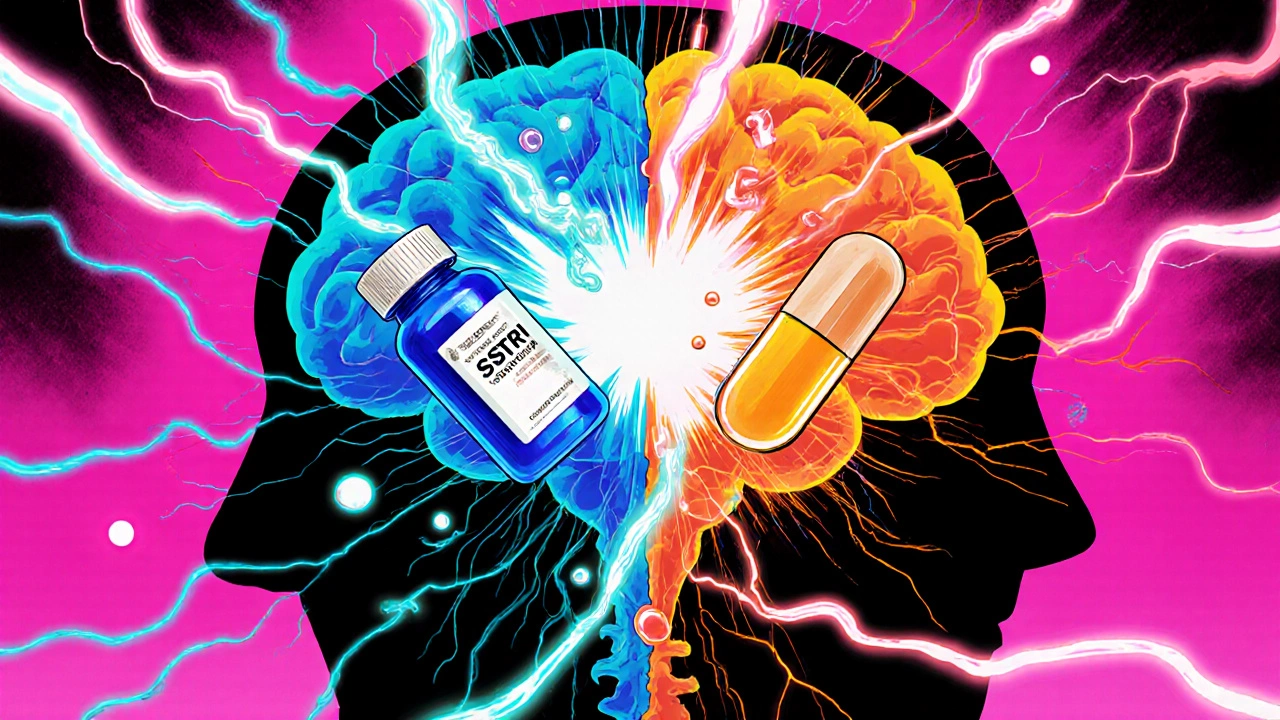Serotonin Syndrome: What It Is, Why It Happens, and How to Handle It
When dealing with Serotonin Syndrome, a potentially life‑threatening condition caused by too much serotonin activity in the brain and peripheral nervous system. Also known as serotonin toxicity, it usually shows up after a sudden boost in serotonergic signaling, often from mixing certain medications or overdosing on a single drug. The core issue is excess activation of serotonin (5‑HT) receptors, especially the 5‑HT1A and 5‑HT2A subtypes, which can trigger a cascade of autonomic, neuromuscular, and cognitive disturbances. Understanding the exact trigger matters because the same symptom set can arise from prescription combos, over‑the‑counter supplements, or even certain street drugs. Recognizing the pattern early can make the difference between a quick recovery and a medical emergency.
Key Players and How They Interact
One of the most common culprits is serotonergic medication, any drug that increases serotonin levels by stimulating release, blocking reuptake, or preventing breakdown. This umbrella includes selective serotonin reuptake inhibitors (SSRIs), drugs like fluoxetine, sertraline, and citalopram that block the serotonin transporter and monoamine oxidase inhibitors (MAOIs), agents such as phenelzine or tranylcypromine that stop the enzyme breaking down serotonin. When an SSRI meets an MAOI, the serotonin pool can skyrocket because one drug pushes more serotonin into the synapse while the other stops it from being cleared. Similar spikes happen with tramadol, meperidine, linezolid, St. John’s wort, or even high‑dose tryptophan supplements. The classic semantic triple here is: "Serotonin Syndrome encompasses drug interactions," and "excess serotonin activates 5‑HT receptors," which then "produces the clinical triad of autonomic, neuromuscular, and mental changes."
Symptoms usually appear within minutes to hours after the offending combination is taken. Autonomic signs include rapid heart rate, high blood pressure, fever, and flushed skin. Neuromuscular findings range from mild tremor to severe clonus, hyperreflexia, and even seizures. Mentally, patients can become agitated, confused, or slip into delirium. Not every case shows all three groups, but most clinicians use the Hunter Serotonin Toxicity Criteria, which relies on a few key features like spontaneous clonus, inducible clonus plus agitation, or ocular clonus with hyperthermia. The presence of these signs points strongly toward serotonin syndrome, helping providers separate it from other causes like neuroleptic malignant syndrome or anticholinergic toxicity.
Managing the condition starts with stopping all serotonergic agents immediately—this is the single most effective step. Supportive care follows: cooling measures for hyperthermia, intravenous fluids to maintain blood pressure, and benzodiazepines to calm agitation and reduce muscle rigidity. In severe cases, serotonin antagonists such as cyproheptadine may be administered, though evidence is limited to case series. Monitoring in an intensive‑care setting is advised when patients develop high fevers, severe hypertonia, or rapid heart rates. The treatment pathway demonstrates another semantic triple: "Excess serotonin leads to hyperthermia," and "hyperthermia requires aggressive cooling," establishing a clear cause‑effect chain.
Prevention is equally important. Clinicians should avoid prescribing SSRIs together with MAOIs or other serotonergic agents unless a wash‑out period of at least two weeks is observed. Patients should be educated about over‑the‑counter supplements that can add serotonin, such as certain weight‑loss pills, migraine treatments (triptans), and herbal products. Pharmacists play a key role in catching risky combos at the point of sale. When a new serotonergic medication is started, a careful review of the patient’s current drug list helps spot hidden dangers.
Below you’ll find a curated collection of articles that dive deeper into the drugs most often linked to serotonin syndrome, practical guides on how to recognize early warning signs, and step‑by‑step strategies for safe medication management. From supplement selection tips to detailed drug‑interaction charts, the resources ahead will give you the knowledge you need to protect yourself or your patients from this avoidable condition.



